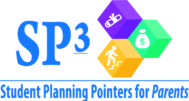Turn Summer Plans Into Life Lesson Plans

Many students envision a summer filled with loads of “free” time without the daily routine of classes, homework and activities that tend to fill school days. However, as the adult in the household, assume the teacher role and create your own lesson plans that are full of life lessons instead of academics.
Why It Matters
- Everyone needs life skills.
Basic life skills are required for leading a productive and fulfilling life in addition to becoming a contributing member to society. - Routines develop into lifelong habits.
Similar to how athletes develop muscle memory with extensive repetition, daily duties and tasks can become a learned and responsible behavior without necessary reminders. - A daily plan prevents boredom.
Having a daily goal, whether small or large, provides purpose and prevents boredom from setting in.
What Your Student Can Do Now
- Make a schedule.
A part-time job or a summer sport, or both, may set the foundation for your student’s summer schedule and reveal the gaps where life lessons can occur. Be sure to include any family vacation plans or other obligations. The calendar system or planner your student currently uses for school could easily be implemented for the summer break. - Make a list.
No matter its feasibility or affordability, let your student list everything that should be included in the summertime schedule — the sky’s the limit! Options might include a trip to a Disney park or to watch a favorite professional baseball team play. Visiting a favorite relative in another state or starting a vegetable garden might even appear on the list. Compare it with other family members’ lists and discuss any common items to see if they are affordable options for the entire family. Playing a role in the decision-making process helps individuals voice their preferences, agree to compromise and strengthen communication skills. The chances are pretty good that one of life’s essential skills — budgeting — will be the first lesson learned before summer even begins. - Set goals.
Reaching goals requires discipline with consistent training and practice. Help your student define realistic goals that can be reached. Your student’s dream of becoming a chef in one summer won’t be realized by making every recipe in a favorite cookbook. However, trying one or two dishes a week after budgeting and shopping for the ingredients is doable. Along the way, life skills such as food terminology, measuring (a lesson in fractions) and using kitchen appliances are learned. Kitchen skills are one component in managing a household, giving your student the independence that will be needed after high school.
What Your Student Can Do Later
- Make it a regular habit.
The future chef in your family could eventually become the primary grocery shopper, comparing price per quantity and various store ads, and possibly setting weekly menus for the household. - Involve other family members.
Your older student’s responsibilities set an example for other family members. Encourage your student to involve younger siblings in more simple tasks around the house. For example, your burgeoning chef could train a sous-chef how to use various kitchen utensils and appliances, thereby reducing meal prep time. A kitchen job board could be created with others cleaning dishes and doing trash duties, giving the entire family additional time together away from the kitchen while honing organizational and time management skills at the same time.
What You Can Do
- Be the coach.
Any coach will say that an athlete isn’t made in one day. Repetition and positive reinforcement are key elements in mastering a skill. - Write your lesson plans.
When it comes to teaching, it’s important to break up the lesson into smaller, specific steps with clear directions and expectations. Before beginning a lesson with your teen about doing laundry or balancing a checkbook, write down the specific steps and share a vision of the finished product. - Keep the future in mind. And it’s Financial Literacy Month!
If you decide that your student’s contributions deserve a monetary reward, discuss the expectation you have for saving and spending the money. If college is in your student’s future, consider having your student make regular deposits to a savings account or a 529 college savings plan, which could prompt a lesson in personal finance with your teenager.
For a short time only, and in celebration of April being Financial Literacy Month, all new and currently registered Iowa parent participants will be eligible for a one-time drawing for a chance to win a $1,000 529 college savings deposit. Ten random winners will be chosen to receive $1,000 following the special giveaway’s closing date of April 30, 2024. New participants just need to register before April 30, 2024. See rules for details.
Next Steps
Be sure to complete the survey questions at the end of this article to be entered into the 529 deposit giveaway!
Additional references, handouts and talking points are available in the right sidebar to use at your leisure. They may prove beneficial to reference now or after receiving future emails — we’ll leave it completely up to you. Use our emails like a recipe for a successful outcome — assemble the recommended ingredients and then follow accompanying directions to add flavor and depth.
